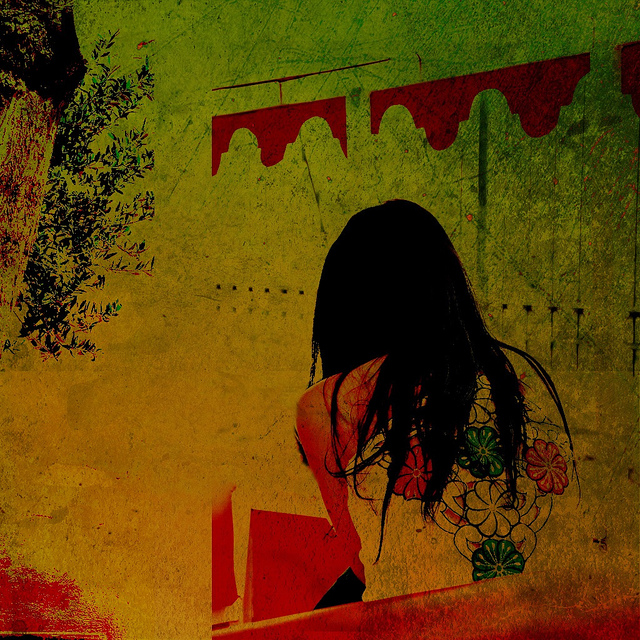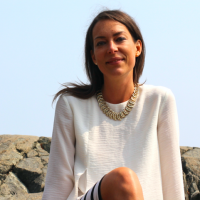Buddhists work with what is real and present in our lives.
In doing so, we learn that we can use everything to transform—a broken heart is especially useful for this.
Who would have thought that the days when loss hits us would be the ones that actually hold the most juice in them for growth? But they do. There is great value in the heartache that is right here.
However, today I did not want to admit this was so. I tried to skirt around feeling the sadness in my chest. I started working as soon as I woke up, drank too much coffee, skipped my morning meditation and ate several breakfasts that rolled into lunch.
I even tried to get out of meeting a friend after work, so that I wouldn’t have to be seen feeling slightly broken. But coincidentally, she called me and admitted that she too felt a pit of loss welling up inside.
It took me learning that another person was experiencing heartbreak to understand that this feeling was meant to be here. How human would we be if we never felt pain?
Perhaps it is through rising up, despite our losses, that we learn we have endless amounts of courage to begin again. So if we find ourselves back at this achy place—the one where our heart feels shaky and raw—it’s okay.
Really, it is. We are just being given another opportunity to transform.
We must learn to work with the stuff that is right here. For many of us, this will mean we choose to face what we thought we should push away—at least in my experience, this is so.
There is one thing that is guaranteed on this planet. Things will always change—and sometimes, the changes will bruise us for a while. I am a firm believer that they are meant to do this. We are supposed to be affected by life.
So don’t be ashamed of a broken heart—it is preparing us for something. Growth and strength both come when we accept that the path we are on is meant to be as it is. Harnessing all of it, every last experience we are having, is what will make the ups and downs worth it.
Don’t miss out on the opportunity to be here, fully alive, heartbreak and all.
If we see our times of suffering as unique opportunities to expand, suffering becomes much less painful. It could actually become something we celebrate. “Wow, look at this gift we are being given to help us grow!”
What we are doing here is becoming the alchemist of our own lives.
There is a story we tell ourselves about heartbreak, and it’s that we can’t handle it—but this is not so.
We can handle it. We can even get chummy with it—after all, it is the catalyst that causes us to practice beginning again. Through this, we become experts at renewal and are able to gracefully rise like a phoenix after each fall.
Things in life will always come apart, but they will also mend back together. Any loss is a chance for us to know ourselves even better.
There’s a Buddhist trick that monk Thich Nhat Hahn talks a lot about, and it is to smile at the things that frighten us to feel. In doing this, we begin to foster a friendliness toward our life. We are not fighting our experience anymore.
Friendliness is a primary practice in Buddhism, and at its core is acceptance. When we become friendly and welcome our reality, we experience greater peace.
Buddhists consciously focus on becoming good and noble companions to the world, and they call this Kalyanamitta. It is a way to move through life that ensures we are not creating more harm. We can use this practice on ourselves and on any heartbreak that is here.
Kalyanamitta instruction means to detach from our minds and our bodies and imagine looking down upon ourselves as a dear friend would, through eyes that are loving and kind.
As we do this, we can whisper, “This is the journey of my life, and I fully embrace it.” The main point of this practice is to show love to whatever is here. As we do so, we lighten up.
We can find great joy and comfort in knowing that hard experiences in our lives are not our enemies. Rather, they can become great allies. When we see things from this perspective, we truly have transformed.
Today, let’s choose to make even heartbreak our friend.
~
Author: Sarah Norrad
Image: Flickr/Sara Biljana Gaon
Editor: Yoli Ramazzina






Read 1 comment and reply